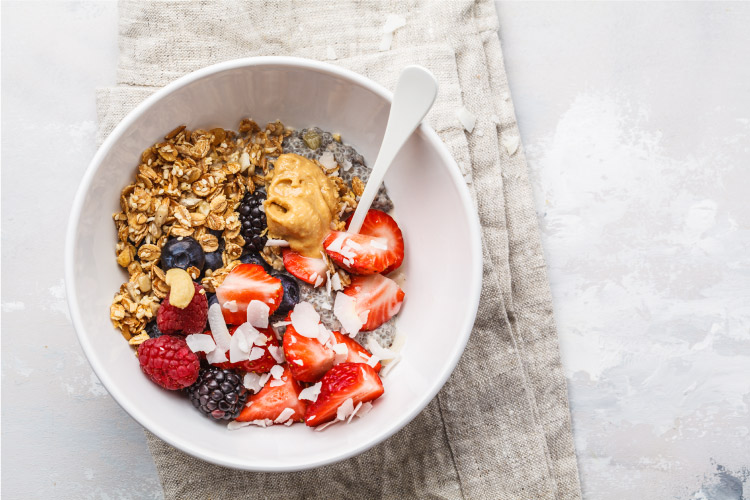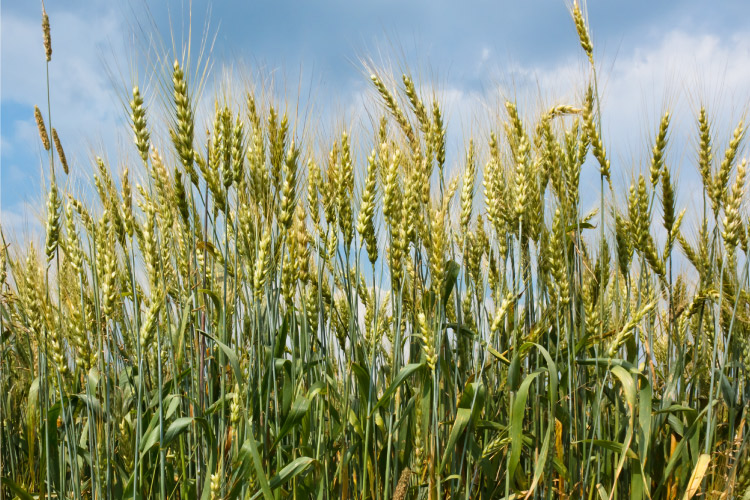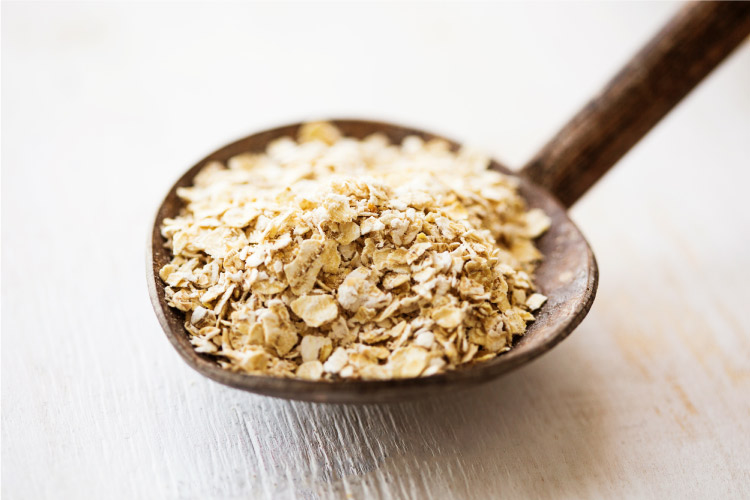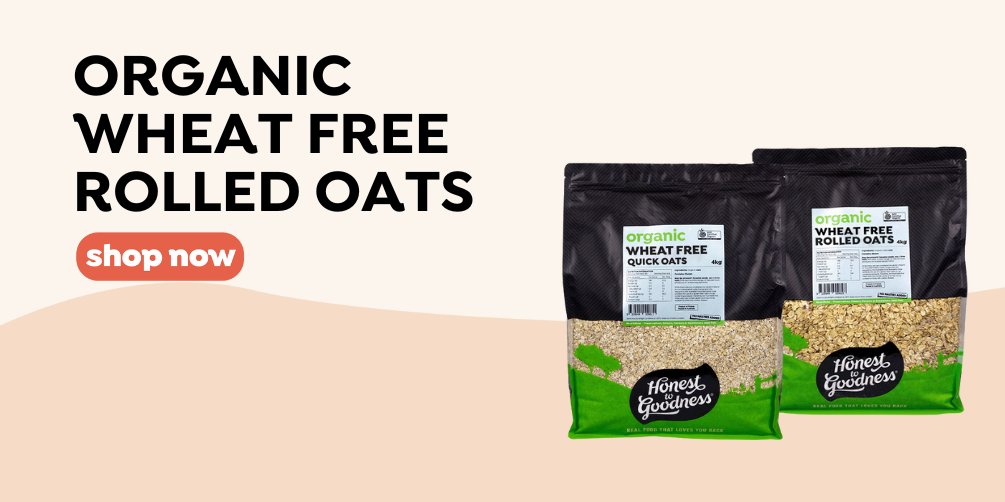Oats are a staple in many households, especially for breakfast and baking! They make a nutritious porridge, muesli or granola and are a great addition to smoothies and baking. But are they safe for our gluten-free foodies?
We often get asked, “Are oats gluten-free?”, so we have put together some information below to help shed some light on this question.
WHAT IS GLUTEN?
Gluten is one of bread’s most valuable components, giving the dough a stretchiness and baked bread its fluffiness.
In most parts of the world, the term ‘gluten’ is used to collectively describe proteins (‘prolamins’) found in wheat, rye and barley. The gluten from each grain is called something different: Wheat – Gliadin; Barley – Hordein; Rye – Secalin. Oats contain a protein (prolamin) called Avenin. Avenin is similar (but not the same) as the 'gluten' proteins in wheat, barley and rye.
The Food Standards Australia and New Zealand (FSANZ) definition of 'gluten' is " Gluten means the main protein in wheat, rye, oats, barley, triticale and spelt relevant to the medical condition’s coeliac disease and dermatitis herpetiformis"
This is where it can get a bit confusing as 'gluten' or 'gluten-free' as a collective term can mean different things to different people depending on where you live. Oats are a product that gets caught up in the confusion. In Australia, we are not able to call Oats 'Gluten-Free' even if they are uncontaminated with the gluten from wheat, barley and rye because they contain 'oat protein' which by our FSANZ definition is also defined as 'gluten'. In most other parts of the world oat protein is not considered as gluten, however in Australia and New Zealand, it is.
Some people that are sensitive or allergic to the gluten found in wheat, barley and rye may have a similar sensitivity to oat-containing products. If you have Coeliac disease it is recommended you avoid gluten-containing foods altogether.

WHAT IS COELIAC DISEASE?
Coeliac disease is an autoimmune disorder in which the presence of gluten in your diet causes damage to your small intestine. This damage and inflammation can cause gastrointestinal symptoms including bloating, vomiting, gas, diarrhoea, constipation, unintentional weight loss and anaemia. Coeliac disease can be diagnosed with a blood test and its treatment is to follow a gluten-free diet forevermore.
In people with coeliac disease, ingestion of the prolamins from wheat, rye and barley is harmful. Oats contain a distantly related prolamin called avenin. There remains some uncertainty over whether avenin from oats is harmful to people with coeliac disease and you should seek medical advice before considering oats and oat products.
Coeliac disease is the most extreme form of gluten intolerance. Some people may not have coeliac disease but are sensitive to gluten and can experience gastrointestinal discomfort when consuming gluten-containing foods so may be looking to avoid or reduce the amount of gluten they consume. This is where correct labelling of foods is essential so consumers can make their own educated choice about what they choose to eat.
DO OATS CONTAIN GLUTEN?
Unfortunately, there is no universally correct answer to this. In Australia, the answer is yes and in other parts of the world, the answer is no. It just depends on the definition of 'gluten' you have and if the oats are uncontaminated from the gluten found in wheat, barley and rye.
Globally, one of the main concerns around labelling oats as gluten-free relates to the risk of oats being contaminated by grains that do contain gluten, from wheat, barley and rye, when grown or processed. It is not uncommon, especially in Australia, for oats to be processed in a facility that also processes other gluten-containing grains, as so oats can be contaminated at this stage with the gluten from these grains. Cross-contamination can also happen in the field when oats are grown in rotation with or side-by-side with other grains.
'Uncontaminated oats' is a relatively new description of oats that have not been contaminated with the gluten found in wheat, rye and barley. They may also be called 'wheat free' oats. It is gluten from the grains wheat, rye and barley that tend to cause the most severe reactions in susceptible people, however aware that
Under the Food Standards Australia & New Zealand (FSANZ) Code, oats and their products are not permitted in foods labelled 'gluten-free'.

WHAT ARE WHEAT FREE OR UNCONTAMINATED OATS?
Our Organic Wheat Free Oats are oats that have been grown and processed in a dedicated mill to ensure the entire production chain remains free of contamination from the gluten-containing grains wheat, rye and barley. The test that is performed is a standard Gluten/Gliadin test that measures the detectable presence of the main protein found in wheat, rye and barley. The results are measured in parts per million (ppm) and no gluten from wheat, rye or barley was detected within the limits of the test (<5ppm). They are sustainably grown and harvested from certified organic, non-GMO seed.
WHAT DOES GLUTEN-FREE MEAN?
Gluten-free means that gluten is not detected in a product, however, the levels of detection are different depending on where you live in the world. This difference in international standards has contributed to a lot of the confusion around the definition of ‘gluten-free’ foods.
In Australia & NZ we have quite strict standards and for a product to be labelled as ‘gluten-free’ and includes that the product contains ‘no detectable gluten’. Current testing methods can only detect as low as 5ppm. In the USA and Europe, their standards are more flexible, where foods that contain up to 20ppm of gluten can be labelled as ‘gluten-free’.
Australia New Zealand Food Standards Code - Standard 1.2.7 - Nutrition, Health and Related Claims outlines the rules surrounding called a food "Gluten Free" in Australia & New Zealand. It is as follows
The food must not contain -
(a) detectable gluten; or
(b) oats or their products; or
(c) cereals containing gluten that have been malted, or their products

HOW CAN YOU TEST FOR GLUTEN?
At the time of writing, the most routine test used when looking for detectable gluten in a food or an area is a gliadin test which detects the presence of the prolamins of wheat, rye and barley. Different gliadin tests have different sensitivities. To call any food 'gluten-free', gluten must be nil detected, or not detectable.
WHAT DOES TESTING AT LESS THAN 5PPM MEAN?
The quantity of gluten in a product can be expressed scientifically as a certain number of parts of gluten contained in every million parts of the product. For example, a product that has no gluten detected at less than 5ppm means that the product has less than 0.0005% gluten content.
CAN YOU TEST FOR OAT PROTEIN CONTENT?
The ELISA Systems Oat Protein Detection kit specifically detects the presence of the oat protein avenin. This is a relatively new test. We do not routinely test our oats for oat avenins as it is assumed that they are always present as they are indeed oats. It would be of more concern if pure oats did not have oat protein! This test is a welcome addition to the quantitative detection of oat protein, therefore fulfilling a much needed role in the gluten analysis of food.
SO… ARE OATS GLUTEN FREE?
In Australia and New Zealand, the answer to this question is NO, as oats contain oats (fancy that!) and here this officially means they also contain gluten.
Our Wheat Free Oats are oats that have been grown and processed in a dedicated mill to ensure the entire production chain remains free of contamination from the gluten-containing grains wheat, rye and barley. They have also been tested for the presence of the main protein found in wheat, rye and barley and this was not detected within the limits of the test (<5ppm). They are sustainably grown and harvested from certified organic, non-GMO seed.
Studies show that pure (uncontaminated) oats are well tolerated by most people with coeliac disease. However, in some people with coeliac disease consuming oats or oat products can result in a potentially harmful immune response. If you have coeliac disease, you should seek medical advice before consuming oats and oat products and only do so if it is deemed safe for you. If you do not have a gluten allergy but are looking to minimise gluten in your diet, then wheat free oats are here for you!







